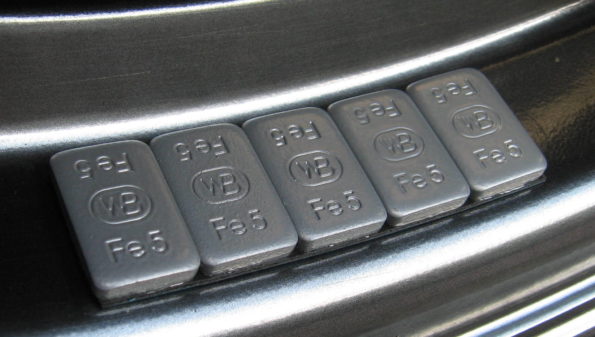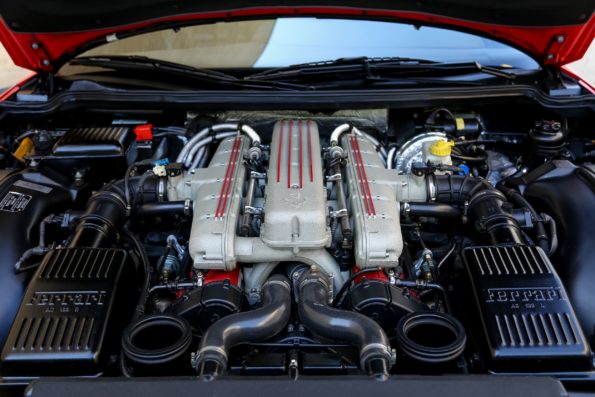There’s no real secret in making your car run smoother, it’s just proper maintenance and some minor adjustments that’ll do the trick. Many of the things you can do require you to shell out a lot of money and some time in the garage, however, not everything needs to be exorbitant. There are some key areas in your car that you can improve or change in order to improve your car’s performance on the road, thus giving you and your passengers that comfort on a long drive.
Follow these tips to make your car go faster and smoother:
- Suspension system
Your suspension system is responsible for absorbing the impact of the road’s imperfections as your wheels ride over them. The configuration of the shock absorbers, springs, and linkages contribute to the fluidity and aids in improving your steering ability. You can check here how to select the right suspension system for your car to achieve a smoother ride. This should be the first thing you should check on your car when you’re thinking of improving the comfort of your ride.
People usually think of the engine when talking about performance, however, there are a lot of key areas such as the suspension system that contribute to the overall performance. In fact, a powerful engine will be useless if you’re just going to have a hard time steering your car on rough, uneven roads.
- The right tyres
People often overlook the tyres when they’re fine-tuning their car’s performance. Wheels are considered by experts to contribute to the overall experience of your drive. The right set of tyres provide optimum control, grip, and handling when for your vehicle. Although large and wide tires may look aesthetically pleasing (and may provide better control), they shouldn’t be part of your configuration if you’re after comfort as they can create more road noise and tend to ‘tramline’ (follow the road’s imperfections) more readily.
You can use tyres with a higher sidewall for greater comfort. The sidewall is the side of the tyre – the more rubber there is there, the more cushioning the tyre will give, assuming you’re following the manufacturer’s recommendations for air pressure.
- Brakes and brake fluid
Brakes are also important when you’re aiming to improve your car’s performance. Good brakes will be progressive and smooth and won’t fade or become ineffective under heavy use, such as on long downhill stretches. Brake fluid will help minimise brake fade.
- Tracking and steering
One way to improve your steering and control is to check your wheel alignment and balance. If they’re out of line, chances are your vehicle will pull in one direction rather than travel straight when there’s no steering input. You’ll also see the tyres wear out unevenly on the shoulders or on one side faster than the other. It’s important to have your wheels aligned beside comfort and saving your tyres, as it can create turning forces while braking.
Unbalanced wheels will cause the car to shudder at certain speeds. This can be solved at a tyre technician; they will balance the wheel using small adhesive weights.

- The right vehicle height
Changing the height of the car is usually done by changing the suspension. As your vehicle’s height increases, its centre of gravity is raised. This means that when you’re cornering, your car may lean more to the outside of the bend and this is less comfortable for you and your passengers, as well as reducing cornering grip.
Lowering your vehicle usually means putting in stiffer shock absorbers which will make the ride more firm, but cornering performance will be improved.
- Engine tuning
An engine with a lot of torque and horsepower usually provides a more comfortable and smooth ride as it will be under less strain in day-to-day driving. You can use lower revs in the engine to achieve the same outcome as a small motor. You can tune your engine to improve its efficiency and performance. Advanced technology allows you to install a chip in your engine to get more power. This device is connected to the computer unit of your vehicle and changes settings such as the timing.

Ensuring your engine is running as smoothly as possible will avoid misfires, unnecessary noise and vibration. Changing the fuel filter and air filter regularly will help your engine maintain its power and consistency.
- Belts
Loose belts, hoses and cables in the engine may cause you to lose power, cause the engine to overheat, or vibrate and create noise. Proper maintenance and regular inspection of these are important for keeping the power at an optimum level. Visually you can check the belts for abrasions, cracks, rib separation, or wear and tear. You can also hear them squeal when you’re going uphill and have your heater or air conditioning running at the same time. Keeping the belt’s appropriate tension is also important and a loose belt is a sign that you should have it adjusted.
Hoses are connected with hose clamps. If these come loose, the hose can blow off.
- Turbo
You can improve your car’s performance by subjecting it to forced induction using a turbo or supercharger, but this is an extreme option and, given the price of used vehicles these days, it might be more economical just to trade up to a model of car with a better power-to-weight ratio. The turbo or supercharger will give you more flexibility with your engine’s power and torque, as explained above. Good aftermarket turbos can add a lot of horsepower, but bear in mind that once you start getting too much above the manufacturer’s rated power output, you may need to upgrade the engine’s internals such as the camshaft, pistons and even the whole block; it’s best to check with the vehicle modding community for pitfalls as some engines come out of the factory good for 400kW, despite leaving the factory floor with half that, while some won’t last at all if you try that level of modification.
Comfort and power are often a trade-off. Luxury vehicles achieve this and the price is reflective of getting that balance. To try for too much power in a car that’s not engineered for it could result in disappointment. However, it’s usually a simple process to make your car more comfortable. What do you want to achieve with your car? Is it a cruiser to impress your dates, or is it a lean, mean racing machine?
